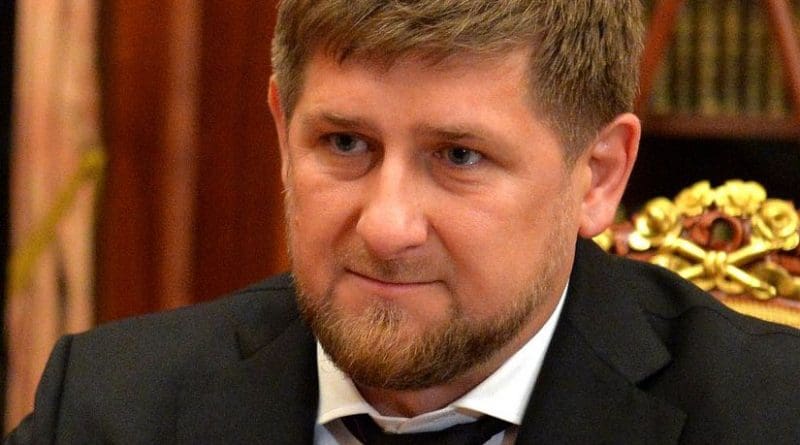Kadyrov Is No More A Chechen Politician Than Putin Is A Russian One – OpEd
By Paul Goble
Most analysts speak of Ramzan Kadyrov as a Chechen politician and Vladimir Putin as a Russian one, implicitly suggesting whether they intend to or not that each speaks for the nation he ostensibly heads, Avraam Shmulyevich says. But in fact, neither represents his nation but rather the totalitarian state machine centered on Moscow.
First of all, the Israeli specialist on the North Caucasus says, “one must clearly understand that Ramzan Akhmatovich Kadyrov represents the Chechens in exactly the same degree that Putin represents the Russians, Matviyenko the Ukrainians of Shoygu the Tuvins.” That is, not at all (afterempire.info/2018/05/31/chechnya/).
Kadyrov today is simply “a highly placed official of the Russian powers that be,” Shmulyevich says. He is “not ‘a Chechen politician,’ but rather one of the most influential of Putin’s ‘courtiers.’” He doesn’t make proposals or act in any way that the Kremlin has not directed him to or at least approved in advance.
He is thus “only an element of the Russian siloviki system; and as to the struggle with enemies of the regime, he acts as a subcontractor” to whatever needs the Kremlin has. “Moscow gives him some assignments, and he fulfills them.” Despite having his own siloviki units, “Kadyrov remains part of the Russian terrorist system.”
субподрядчик.
Chechnya today in fact is “an occupied country. Formally, neither a Chechen power nor Chechen siloviki exist. There everything is Russian. These are Russian soldiers and Russian FSB officers of Chechen nationality,” Shmulyevich continues. They should not be ascribed to Chechens or the Chechen people blamed.
By violence and war, Moscow suppressed the Chechen drive for independence and resubordinated Grozny to its will. It allowed Chechen leaders somewhat more independence because they fought and might fight again, but that does not change the fundamental reality that all power in Chechnya is Russian, including that of Kadyrov.
“De facto, Chechnya now is a feudal vassal state, one that it is difficult to say lies within the legal field of the Russian Federation,” Shmulyevich argues. “But in all this, the power of Kadyrov as vassal is maintained only by the presence of an enormous grouping of the rusisan army. Everything that takes place on this territory does so with Putin’s permission.”
Again, “how can one suggest any of this has any relationship to the Chechen people?” That people is “under the toughest pressure of a totalitarian regime,” one where human rights are at the level of Turkmenistan or North Korea than is the case in other regions of the Russian Federation.
Those Chechens who can have fled, although they continue to be pursued by Grozny and Moscow’s agents. Those who can’t leave are being subjected to a new wave of Russification. Many hate the regime, but some give it lip service either out of fear or out of the belief that that is the best course of action under the circumstances.
But there is a lesson here Moscow does not yet seem to have learned: “Every time when the empire has decided that it has completely pacified the Chechens, the fortress of Russian power has fallen apart like a house of cards, and the suppression of Chechnya and the Caucasus has had to begin again, each time with a new wave of bloodshed.”
This cycle will not continue for eternity, Shmulyevich says, adding that “today’s circle is the last” because “after almost 200 years of war, Russia finally will have to leave both the Chechen Republic Ichkeria and then the entire Caucasus. And this will be only for the good of both the Russians themselves and all Caucasians.”


This article being written by a citzen of a failed state trying to poison the rest of world with the false premise that evreybody deserves a voice. Nobody would deny that Putin is in charge and Kadyrov is a great example of leadership and a loyal friend to Putin and Russia as he should be.